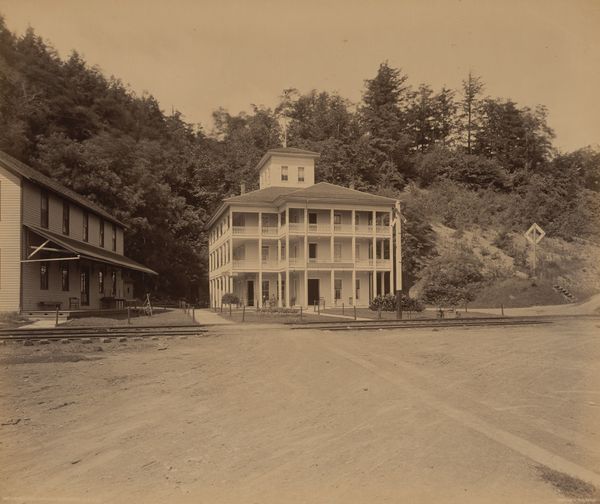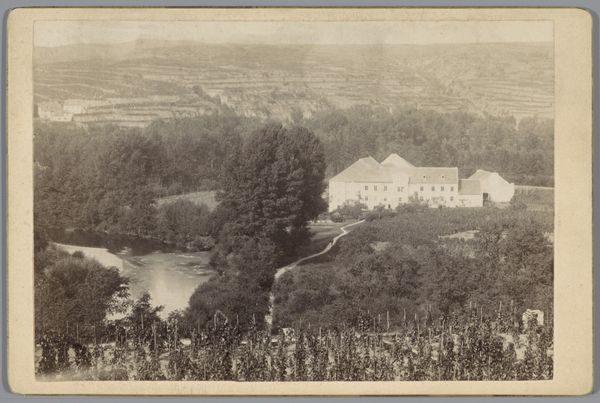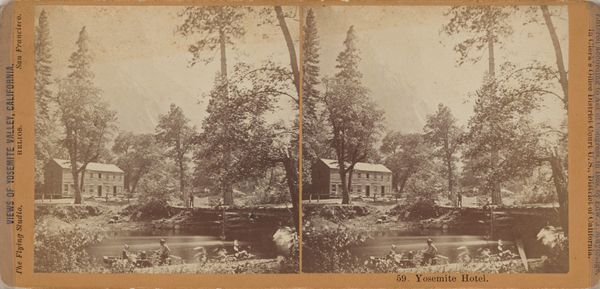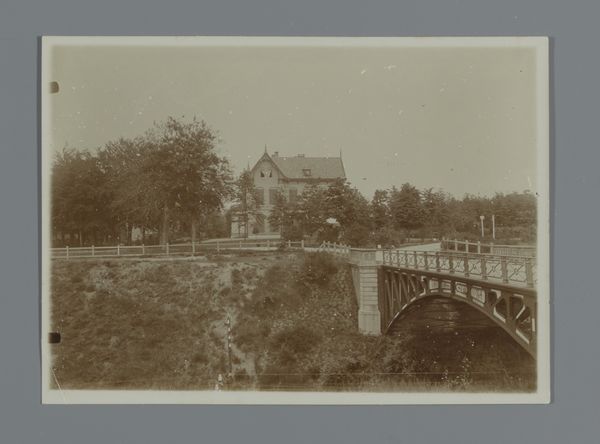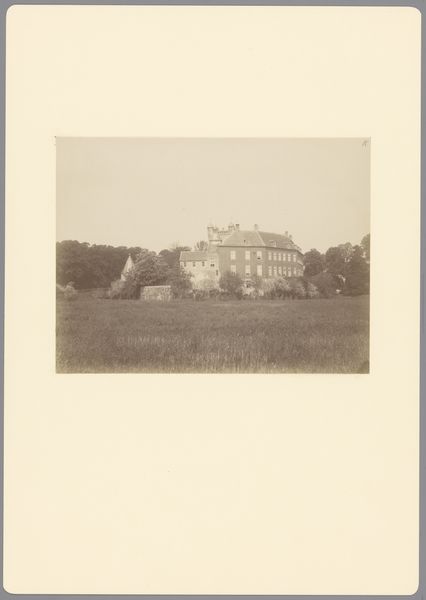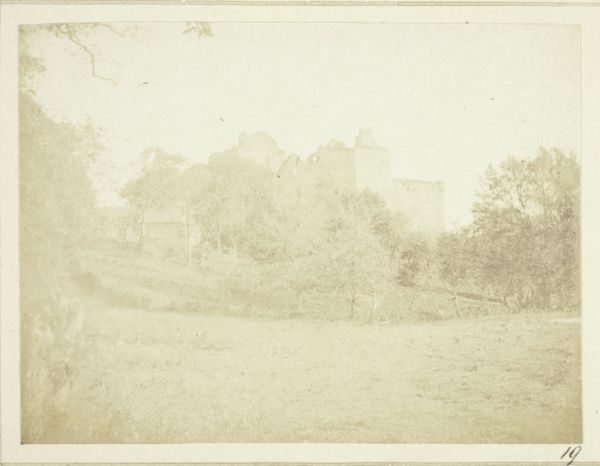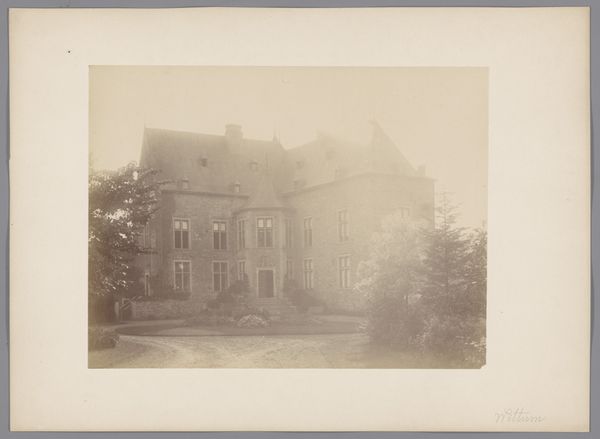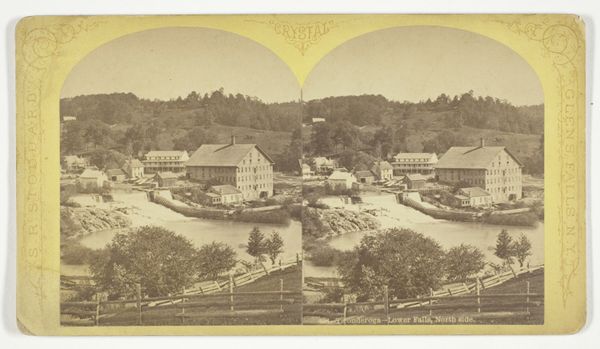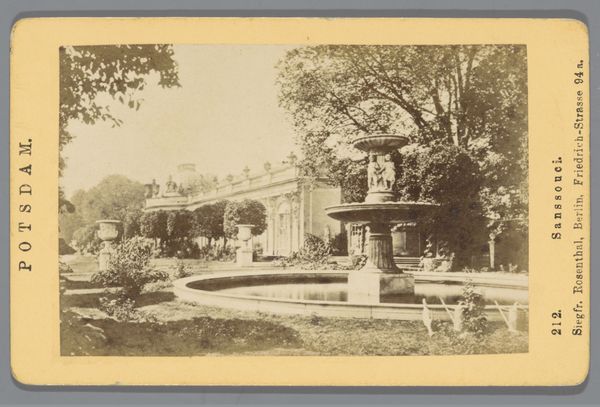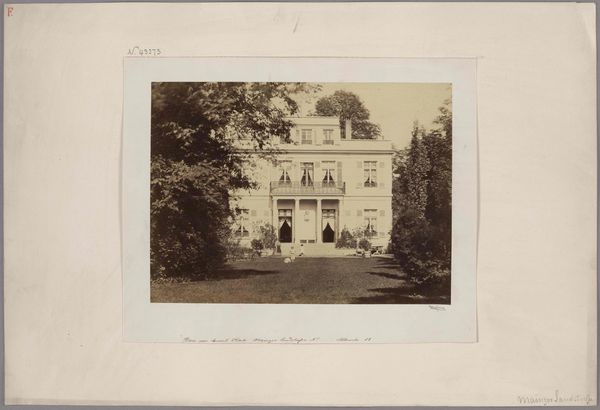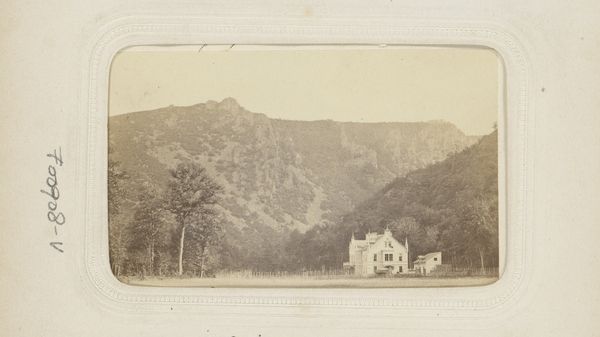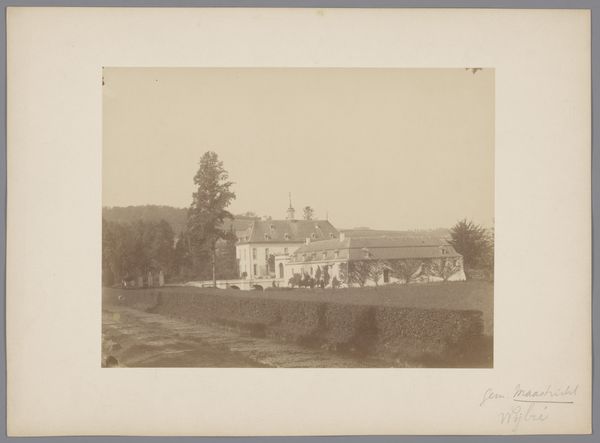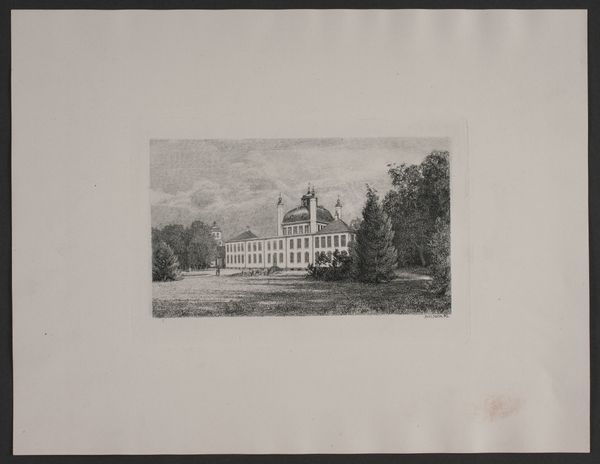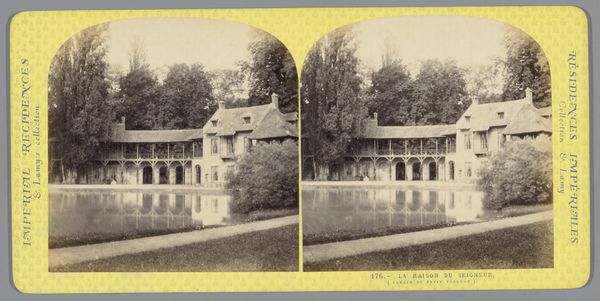
Dimensions: height 107 mm, width 166 mm
Copyright: Rijks Museum: Open Domain
Curator: Oh, my first impression is one of hushed serenity. Like stepping into a half-remembered dream of someone else's good fortune. What do you see? Editor: This albumen print, taken by Wilhelm Ivens between 1867 and 1904, offers a glimpse of landed gentry life. It is titled "Gezicht op een landgoed met landhuis", or "View of an estate with country house". The romantic aesthetic is undeniable, but I immediately think of the historical power dynamics baked into these kinds of images. Curator: Yes, but it is beautifully composed, don't you think? The way the light filters through the trees, softening the imposing façade of the house… There’s a yearning for an idyllic past in this image. Do you see what I mean? It has all the markings of romanticism as an art movement. Editor: Absolutely. And the way that light catches on the manicured gardens reinforces the artificiality of it all. It is interesting that photography as a relatively new medium helped disseminate these romanticized views to a broader audience. But it begs the question, whose romantic vision are we consuming, and at whose expense was it created? The leisure on display in the photo comes at a cost to labor in reality. Curator: Oh, definitely. Yet you have to admit there’s an almost melancholic air too, doesn’t it strike you that way? It looks as if it’s from a fairytale, something ephemeral, always fading. A past glory viewed through a hazy sepia filter of time. Editor: Indeed, sepia being the keyword. These images are not neutral. They are actively constructing an imagined past, and a justification of a certain social order, and what we see is a glorification of elite existence through carefully staged landscape shots. Curator: So, the image becomes both a symbol of beauty and a question mark. How peculiar. It's lovely that art makes us ponder our feelings and histories and everything else about the whole business of living! Editor: It certainly does, and looking critically allows us to excavate its complex and not-so-pretty truths, adding depth to our appreciation, wouldn't you say?
Comments
No comments
Be the first to comment and join the conversation on the ultimate creative platform.
